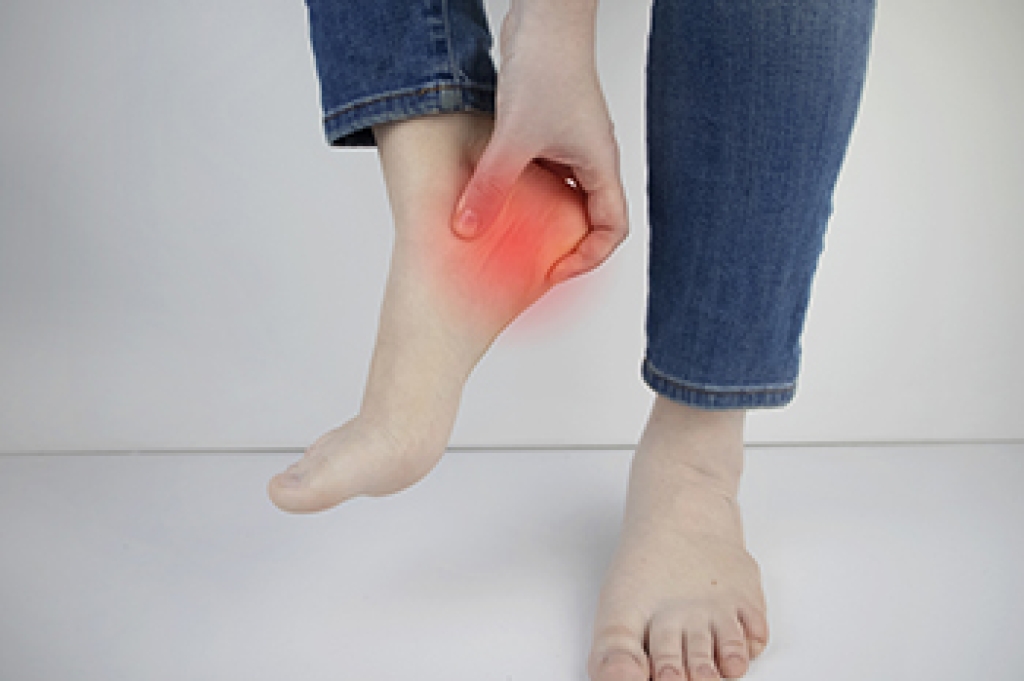
Plantar fasciitis is a common and painful condition that affects the heel and bottom of the foot. It occurs when the plantar fascia, a thick band of tissue that supports the arch of the foot, becomes inflamed or damaged. The pain from plantar fasciitis can be excruciating and debilitating, making simple tasks like walking a challenge. However, there are ways to reduce this pain and improve your quality of life. Included are stretching exercises for the calf muscles and Achilles tendon, custom or over-the-counter orthotic inserts to improve arch support and provide ample cushioning, and avoiding high heels and flip-flops. Other methods to decrease pain from plantar fasciitis are taking anti-inflammatory medications and using night splints to keep the foot in a dorsiflexed position, which helps stretch the plantar fascia during sleep. More advanced measures include corticosteroid injections to reduce inflammation and shockwave therapy, which stimulates healing in the plantar fascia. In rare cases, surgical intervention may be considered. If you are suffering from plantar fasciitis pain, it is suggested that you make an appointment with a podiatrist for treatment options that are right for you.
Plantar fasciitis is a common foot condition that is often caused by a strain injury. If you are experiencing heel pain or symptoms of plantar fasciitis, contact Ramin Nadjafi, DPM from Advanced Podiatry Group. Our doctor can provide the care you need to keep you pain-free and on your feet.
What Is Plantar Fasciitis?
Plantar fasciitis is one of the most common causes of heel pain. The plantar fascia is a ligament that connects your heel to the front of your foot. When this ligament becomes inflamed, plantar fasciitis is the result. If you have plantar fasciitis you will have a stabbing pain that usually occurs with your first steps in the morning. As the day progresses and you walk around more, this pain will start to disappear, but it will return after long periods of standing or sitting.
What Causes Plantar Fasciitis?
- Excessive running
- Having high arches in your feet
- Other foot issues such as flat feet
- Pregnancy (due to the sudden weight gain)
- Being on your feet very often
There are some risk factors that may make you more likely to develop plantar fasciitis compared to others. The condition most commonly affects adults between the ages of 40 and 60. It also tends to affect people who are obese because the extra pounds result in extra stress being placed on the plantar fascia.
Prevention
- Take good care of your feet – Wear shoes that have good arch support and heel cushioning.
- Maintain a healthy weight
- If you are a runner, alternate running with other sports that won’t cause heel pain
There are a variety of treatment options available for plantar fasciitis along with the pain that accompanies it. Additionally, physical therapy is a very important component in the treatment process. It is important that you meet with your podiatrist to determine which treatment option is best for you.
If you have any questions, please feel free to contact our office located in Orlando, FL . We offer the newest diagnostic and treatment technologies for all your foot care needs.
